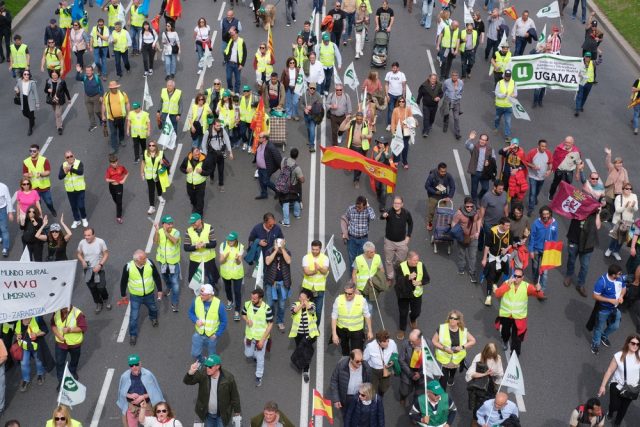
The European Union’s Common Agricultural Policy (CAP) has become something of a political hot-topic, both in the Brussels Bubble and in the capitals of Member States. The policy, of course, aims to vertebrate in a single framework EU’s agro-economy, which includes livestock, agricultural, and food production.
Member states such as Spain, France, and Germany have called for the CAP to be reformed to make it more effective, less bureaucratical and more practical for the highly regulated European primary sector, which, at times, has been harmed by products from third countries.
However, the latest Eurobarometer survey has shown unprecedented support for the European Union’s CAP, reaching the highest level of public awareness since 2007, with 78% of respondents recognising the Common Agricultural Policy. In fact, most EU citizens believe the CAP is successfully providing safe and high-quality food while contributing to ensuring a stable food supply.
The results in the survey show a stark contrast with last year’s farmers protests against the CAP in cities like Paris, and Madrid.
70% of respondents believe that the Common Agricultural Policy also plays a key role in the sustainable management of natural resources and in boosting research in the agricultural sector.
Additionally, citizens view favourably the CAP’s role in job creation in the agro-food sector and its contribution to the fight against climate change.
In general, the Common Agricultural Policy is seen as a driver of investment and growth in the agricultural sector, as well as helping to reduce regional disparities and encourage the involvement of young people in the sector.
The survey results also reflect a high level of appreciation from Europeans for farmers and rural areas, with 92% supporting the importance of agriculture for the future of the EU. Furthermore, 56% of respondents consider the level of financial support provided by the EU to farmers to be adequate, showing a notable increase from the previous year.
Support for subsidies for environmentally friendly agricultural practices is also high, reaching 88%.
Regarding citizens’ expectations, the majority considers it crucial to guarantee a constant food supply and ensure reasonable food prices for consumers. The importance of strengthening the role of farmers within the food chain is also emphasised, with 91% considering the sustainable management of natural resources to be essential.
The survey also revealed a positive evaluation of the EU’s trade agreements—like the recently signed MERCOSUR deal, which became a hot button issue in European capitals—with 76% of respondents agreeing that these agreements favor market diversification and the supply of agricultural products. Moreover, Europeans believe that these trade agreements promote stricter labour and environmental standards, including those related to animal welfare in agricultural production.
Regarding quality labels, European citizens show good recognition of the organic farming logo (56%), although the Protected Geographical Indication (PGI) and Protected Designation of Origin (PDO) labels still need greater awareness.
Christophe Hansen, the Agiculture Commisioner, has highlighted the CAP’s relevance, as it remains a fundamental pillar of European integration and sustainability.
All the data presented by this new Eurobarometer clears doubts about the viability and acceptance of the implementation of the Common Agricultural Policy.
Although there is still a long way to go, the figures show that the Common Agricultural Policy is reaching historic values for its optimal development in state policies. However, the survey itself ought not to be the sole indicator for the CAP’s favourability. The Commission must engage constantly with farmers and other relevant interest groups to ensure the voices of the sector are being heard.
With all this, Christophe Hansen faces the challenge and opportunity to make Common Agricultural Policy a policy that adds to European competitiveness against other practices from third parties.



 Subscribe
Subscribe